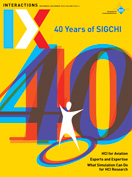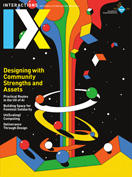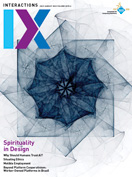Blogs
The labor behind the tools: Using design thinking methods to examine content moderation software
Posted: Thu, June 24, 2021 - 10:02:38
Content moderation is widely known to be hidden from the public view, often leaving the discourse bereft of operational knowledge about social media platforms. Media and scholarly articles have shed light on the asymmetrical processes of creating content policies for social media and their resulting impact on the rights of marginalized communities. Some of this work, including documentaries, investigative journalism,…
Covid-19, education, and challenges for learning-technology adoption in Pakistan
Posted: Fri, February 05, 2021 - 2:14:12
Creating educational disruption everywhere, the Covid-19 pandemic has hindered the lives of students and, sadly, will probably have a lasting impact on their future academic lives. What has gone relatively unnoticed is that it has created far more difficulties in developing countries. This is due to the fact that these countries were already lacking in internet accessibility, e-learning solutions providers,…
Technology use and vulnerability among seniors in Sweden during Covid
Posted: Wed, January 20, 2021 - 2:20:00
From its place of origin, Wuhan, China, the coronavirus has spread worldwide and infected millions of people. Countries have adopted various strategies to curb the spread of the virus, social isolation being one. Sweden is one of few countries that has never closed down entirely but instead has relied on individuals' own responsibility in taking adequate precautions and following recommendations.…
Utopian futures for sexuality, aging, and design
Posted: Tue, January 19, 2021 - 1:35:54
This excerpt is from a letter to a future self, a story written at a workshop held at DIS 2020 [1], where participants reframed and reimagined what intimacy might mean for the aging body and what role technology might play. Aging and the changes to the body it brings with it are often portrayed as something negative, a time of…
Cultivating activism with speculative design
Posted: Fri, December 18, 2020 - 4:29:36
As design researchers, we love our speculative methods—methods for imagining possible futures—and opening them up to discussion and critique. But what good do they do? Designing speculative futures to discuss values, ethics, safety, and security can feel naive, as fellow researchers are being dismissed for doing the work of ethics. We want to believe that to imagine possible futures is…
A call for respect, inclusion, fairness, and transparency in SIGCHI
Posted: Thu, December 03, 2020 - 3:59:36
We are writing this blog post as a response to the discussions about exclusion and oppression within SIGCHI that occurred on the Interactions blog in summer 2020, and a call for respect, inclusion, fairness, and transparency in SIGCHI. Our collective, fempower.tech, started the #CHIversity campaign at the 2017 Human Factors in Computing (CHI) conference because we didn’t feel welcome in…
How fragmentation can undermine the public health response to Covid-19
Posted: Fri, October 30, 2020 - 5:24:04
At this point, we are all familiar with Covid-19 and its impacts on ourselves, our communities, and our world. Responses to the disease have largely been led by local, national, and international public health agencies, who have activated their pandemic plans and opened the epidemiological toolkit of modeling, testing, isolation and movement restrictions, surveillance, and contact tracing. When it comes…
Future directions for situationally induced impairments and disabilities research
Posted: Tue, October 06, 2020 - 1:29:59
Mobile devices are our constant companions. We use them in varied contexts and situations, such as outside on a cold street, lying down in a dark bedroom, and commuting to work on a train. These situations challenge our ability to use mobile devices and can negatively influence our interactions with them. For example, we slow down or make more errors…
Fighting Coronavirus with Faith: Religious and Parareligious Responses to Covid-19 in Bangladesh
Posted: Wed, September 16, 2020 - 1:39:52
Many communities in Asia, Africa, and Latin America—often left out of human-computer interaction (HCI) discussions—defy the boundary of scientific rationality and seek healthcare and well-being from various traditional faith-based practices. For example, South African indigenous traditional healers serve 60 percent of their population. And thousands of Peruvians use the ancient tradition of mystical healing and shamanism for their well-being, as…
Learning remotely, making locally: Remote digital fabrication instruction during a pandemic
Posted: Fri, September 04, 2020 - 11:29:41
The Covid-19 pandemic has fundamentally disrupted learning by requiring a society-wide shift to remote instruction. This shift has raised specific challenges for students and educators in classes that rely on physical making. We teach digital fabrication—a subject that combines computational design tools and computer-controlled fabrication machines. When our campuses in Santa Barbara and Seattle shut down during the start of…





